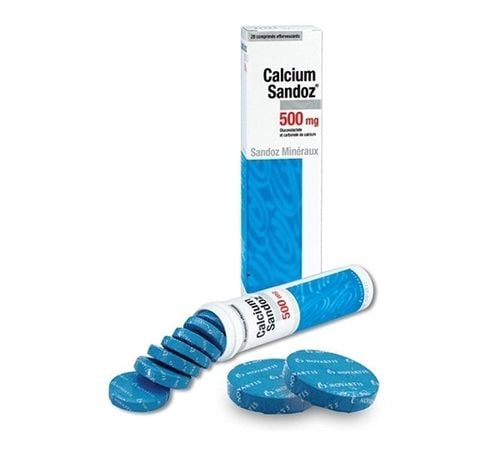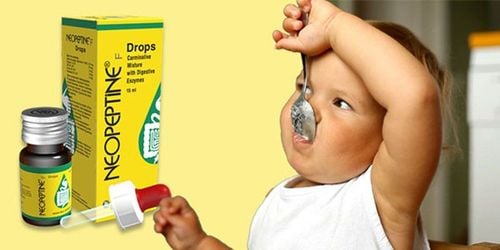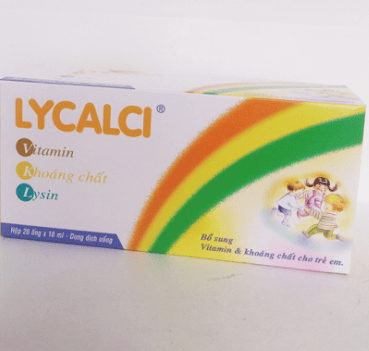This is an automatically translated article.
The period of physiological anorexia of children can occur at the age of 6 months or older. In which, 6 months of age is a very important milestone because this is the period when babies start eating solid foods. Physiological anorexia in 6-month-old children needs to be recognized and overcome early to help children develop healthy.1. Causes of physiological anorexia in 6-month-old children
The period of physiological anorexia of children can occur at 6 months of age, 8 months of age, 1 year of age or older. In which, 6 months of age is a very important milestone marking the period when babies start eating solid foods. However, this is also the period when children are susceptible to anorexia due to changes in their body, digestive system and nutritional needs.The causes of anorexia include physiological anorexia, pathological anorexia, psychological anorexia and anorexia due to improper diet. Physiological anorexia in 6-month-old children is mainly due to changes in the body's homeostasis during development. In particular, teething is the cause that makes the baby easy to anorexia and stop eating, because teething will make the gums swollen, painful, causing fever.
2. Consequences of physiological anorexia in 6-month-old children
Physiological anorexia in young children, if not detected and corrected early, will adversely affect the health as well as the physical and intellectual development of the child. Specifically, the bad effects are as follows:Anorexia makes the amount of nutrients put into the body very little, leading to malnutrition. Anorexia causes micronutrient deficiency leading to growth disorders, growth retardation in height and weight, affecting the function of endocrine glands. Anorexia makes children have impaired immune function. Children's resistance is low, so children are susceptible to diseases, especially respiratory infections (pharyngitis, bronchitis, pneumonia, ..) or intestinal infections. Effects on vision. Poor intellectual development.

Biếng ăn sinh lý ở trẻ 6 tháng tuổi khiến nhiều cha mẹ lo lắng
3. Solutions to improve physiological anorexia in 6-month-old children
To improve the physiological anorexia in young children in general, parents need to understand the basic principles when giving solid foods to children.Ensure children's meals are nutritious and varied: Weaning meals for 6-month-old children must always ensure the following 4 important groups of nutrients: Protein from chicken, pork, cow, fish, eggs, milk ; sugars from rice, oats, cereals, potatoes, sweet potatoes; fats from animal fats (pork, fish) or vegetable oils (olive oil, peanut oil, sesame oil); vitamins and minerals from vegetables, tubers, fruits such as mushrooms, carrots, tomatoes, amaranth, spinach, spinach, water spinach, collard greens, cauliflower, kohlrabi, avocado, bananas, pears, apples, ... In addition, parents also need to add fiber to the child's diet because they are good for the digestive system. To avoid boring and stimulating eating for your baby, you should diversify foods and prepare them in different ways. The composition of nutrients should be balanced. The number of weaning meals is gradually increased from 1 meal/day to 2 meals/day so that the child's digestive system has time to adapt. Feed your baby according to the principle from liquid to solid, from little to more, from sweet to salty. The menu as well as the way to prepare food is diverse, changing daily to create a strange feeling, helping children eat better. Ensuring food safety and quality. Choose foods that are fresh and of clear origin. Avoid buying ready-to-eat foods because they may contain substances harmful to children.

Cần đảm bảo bữa ăn đủ chất và đa dạng khi biếng ăn sinh lý ở trẻ 6 tháng tuổi
Besides, symptom improvement can take place for a long time, so it is recommended that parents be calm and persistent when supplementing with nutrients for their baby, even through eating or functional foods. In particular, the use of functional foods should choose those of natural origin that are easily absorbed, do not allow simultaneous use of many types or continuously change the types of functional foods.
For more nutritional knowledge and child care for each age, parents should regularly visit the website vimec.com and make an appointment with the leading doctors, pediatric and nutrition experts of the National General Hospital. Vinmec when needing advice on children's health.













